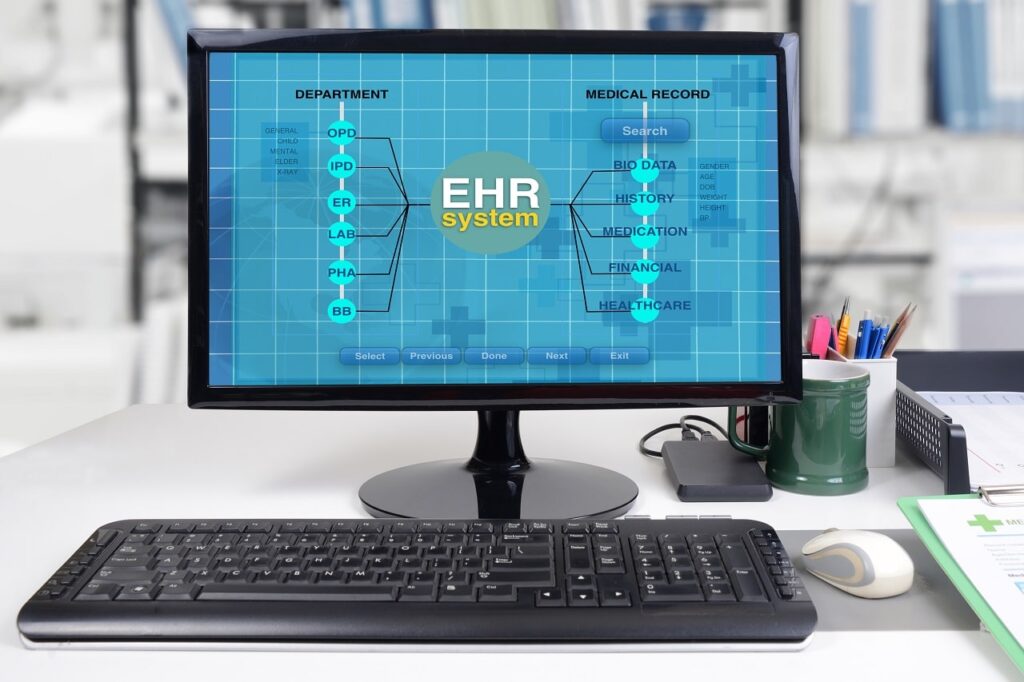Introduction
Let’s go on a trip to learn about the function and influence of cloud computing in healthcare business. In an era of technology revolutionizing various sectors, healthcare is no exception. Incorporating cloud computing is one of the important technical developments in this industry.
What is Cloud Computing?
-
Definition and Explanation
Cloud computing refers to delivering computing services, including servers, storage, networking, software, analytics, and intelligence, over the Internet to offer faster innovation, flexible resources, and economies of scale.
-
The Intersection of Cloud Computing and Healthcare
The amalgamation of cloud computing and healthcare creates seamless, efficient, and more accessible healthcare services. It’s making patient data more secure, reliable, and accessible while ensuring compliance with healthcare standards.
Benefits of Cloud Computing in Healthcare
-
Cost Efficiency
By minimizing physical infrastructure costs, cloud computing offers cost-efficient solutions to healthcare providers.
-
Scalability
As the healthcare sector evolves, cloud computing allows for the easy expansion and scaling of digital healthcare services.
-
Accessibility
Cloud computing ensures that healthcare providers and patients can access essential data and applications anytime, anywhere.
-
Security and Compliance
Cloud computing in healthcare emphasizes robust security measures and compliance with healthcare standards and regulations.
Challenges and Concerns
-
Data Privacy
One of the significant concerns is data privacy. This is critical for safeguarding sensitive patient information.
-
Compliance Issues
Navigating and ensuring adherence to various healthcare compliance standards is a challenge for cloud computing in healthcare.
Real-Life Applications
-
Electronic Health Records (EHR)
Cloud computing facilitates seamless and secure access to electronic health records, enhancing healthcare service delivery.
-
Telehealth Services
Telehealth services are bolstered by cloud computing, ensuring reliable and efficient remote healthcare services.
-
Medical Imaging
Cloud computing enables the efficient and secure handling of vast medical imaging data, ensuring timely and reliable healthcare services.
-
Case Studies
Various healthcare providers have successfully integrated cloud computing, illustrating improved healthcare service delivery, cost efficiency, and robust data handling and security.
Future of Cloud Computing in Healthcare
The future is promising, with cloud computing playing a pivotal role in further enhancing healthcare service delivery and ensuring more robust, efficient, and secure healthcare services.
-
How to Implement Cloud Computing in Healthcare
Understanding the healthcare sector’s particular demands and matching cloud computing technologies with these needs is critical for effective deployment.
Conclusion
In conclusion, cloud computing revolutionizes the healthcare industry, ensuring robust, efficient, and reliable healthcare services. Despite the challenges, the future promises enhanced and seamless healthcare service delivery.
FAQs for Cloud Computing in Healthcare
What are the challenges of implementing cloud computing in healthcare?
Challenges include ensuring data privacy and navigating various healthcare compliance standards.
Are there real-life examples of successful cloud computing integration in healthcare?
Yes, various healthcare providers have successfully integrated cloud computing, showing significant improvements in service delivery and data handling.
Is cloud computing secure for handling sensitive healthcare data?
Yes, cloud computing highly emphasizes robust security measures for protecting sensitive data.
What is the future of cloud computing in healthcare?
Rate our Article (Cloud Computing in Healthcare | Secure & Efficient)How much do you like our Article?


